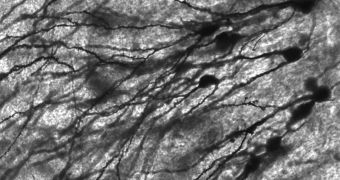Researchers at the Arizona State University (ASU) say that mirror neurons, the same type of nerve cells involved in understanding actions we see or hear described to us, also play a role in learning a second language, with new contexts, cultural formats, words, expressions, and phrases.
The new study was meant to determine some of the fundamental pathways the human brain uses to collect, accept, process, and tag information from its environment. The scientists behind this work believe that these conclusions will enable the development of more effective techniques for learning a second language.
The brain mechanism in question is called the mirror neuron system (MNS), and it has been the focus of research at ASU for quite some time now. An interesting aspect of the study was that researchers were able to modify the parameters of MNS using nothing more than language.
Even more interestingly, this change also altered visual perception in test subjects. This research demonstrates for the first time the exact mechanism through which simple words can alter the way we perceive the world around us visually, Science Daily reports. Simple sentences like “Cameron gives Annagrace a pencil” were used in this study.
“We tested the idea that the mirror neuron system, which is part of the motor system, is used in the simulation process. The MNS is active both when a person takes an action (e.g., giving a pencil), and when that action is observed (witnessing the pencil being given),” says ASU psychology professor Arthur Glenberg.
“Supposedly, the MNS allows us to infer the intentions of other people so that when Jane sees Cameron act, her MNS resonates, and then Jane understands why she would give Annagrace the pencil and infers that that is the reason why Cameron gives Annagrace the pencil,” he adds.
Details of the new study appear in a recent issue of the journal Frontiers in Human Neuroscience, in a paper entitled Language comprehension warps the mirror neuron system. The work was carried out by Glenberg, former ASU psychology major Noah Zarr, and ASU graduate student Ryan Ferguson.
“The MNS has been associated with many social behaviors, such as action, understanding and empathy, as well as language understanding. Previous work has demonstrated that adapting the MNS can affect language comprehension. But no one had yet shown that the process of language comprehension can itself change the MNS,” Glenberg concludes.

 14 DAY TRIAL //
14 DAY TRIAL //